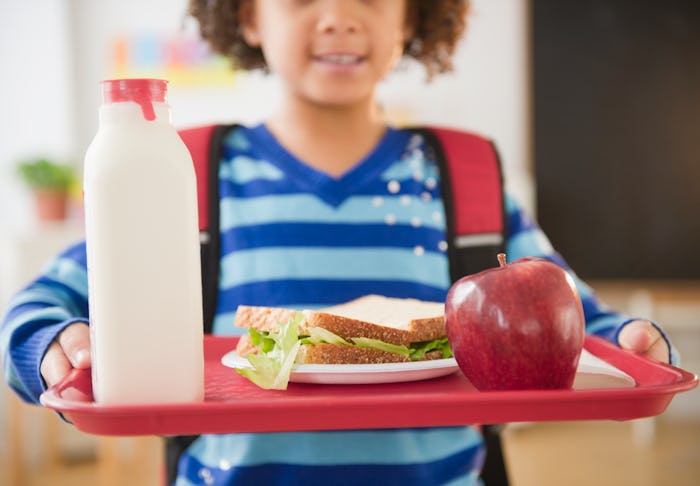News

The USDA Has Extended Its Universal Free School Meal Program
The extension ensures all kids will have access to a free meal through June 2022.
The United States Department of Agriculture (USDA) has extended the universal free school meal program first launched early in the coronavirus pandemic, essentially ensuring that all children will have access to free nutritious meals through June 2022, regardless of their parents’ household income. In extending the free lunch waivers and increasing the reimbursement rate schools receive per meal, the USDA has saved schools from having to potentially deny children meals or process eligibility applications at a time when many schools remain closed and millions of families are facing financial hardship.
“[The] USDA will remain relentless in ensuring our nation’s children get the critical nutrition they need,” Agriculture Secretary Tom Vilsack said in a statement released by the agency Tuesday. “USDA answered the call to help America’s schools and childcare institutions serve high-quality meals while being responsive to their local needs as children safely return to their regular routines.”
The waivers, which were instituted by the USDA early in the coronavirus pandemic, gave schools greater flexibility when it came to where, how, and to whom they could serve free meals to. Under the waivers, schools could issue free meals to all children without having to adhere to group-setting or traditional meal-time guidelines. As a result, schools that had closed to in-person learning in an attempt to slow the coronavirus could distribute pre-packed meals to children ahead of traditional mealtimes through curbside pickup or home delivery.
In extending the waivers, the USDA has also increased the reimbursement amount schools will receive for each meal distributed. It was not revealed Tuesday what the new reimbursement amount would be.
Up until Tuesday, the waivers were set to expire on Sept. 30. But according to the USDA, states and school districts were eager to see waivers extended as soon as possible so they could better prepare for the 2021-2022 school year. In March, the USDA estimated there were 12 million children currently living in households where there was not always enough food to eat. The agency said Tuesday it hopes extending the free lunch program enables them to reach as many of those food-insecure children as possible.
“Students’ success in the classroom goes hand in hand with their ability to access basic needs like healthy and nutritious meals,” Secretary of Education Miguel Cardona said in a statement released Tuesday. “It’s critical that our efforts to reopen schools quickly and safely include programs that provide access to free, healthy meals for our most vulnerable students, particularly those whose communities have been hardest hit by the pandemic. This program will ensure more students, regardless of their educational setting, can access free, healthy meals as more schools reopen their doors for in-person learning.”
Indeed, research from The Maxwell School Center for Policy Research has shown that providing universal free meals can increase students’ performance in subjects like math and English. In the Maxwell School study, both “poor and non-poor” middle school students’ academic performance in English and math increased following their participation in a universal school lunch program. “Results indicate that increases in school lunch participation improve academic performance for both poor and non-poor students,” the study noted. “An additional lunch every two weeks increases test scores by roughly 0.08 standard deviations in math and 0.07 standard deviations in [English Language Arts].”
On Tuesday, Vilsack called the USDA’s move to extend universal free school lunches through June 2022 “a win-win for kids, parents, and schools.”